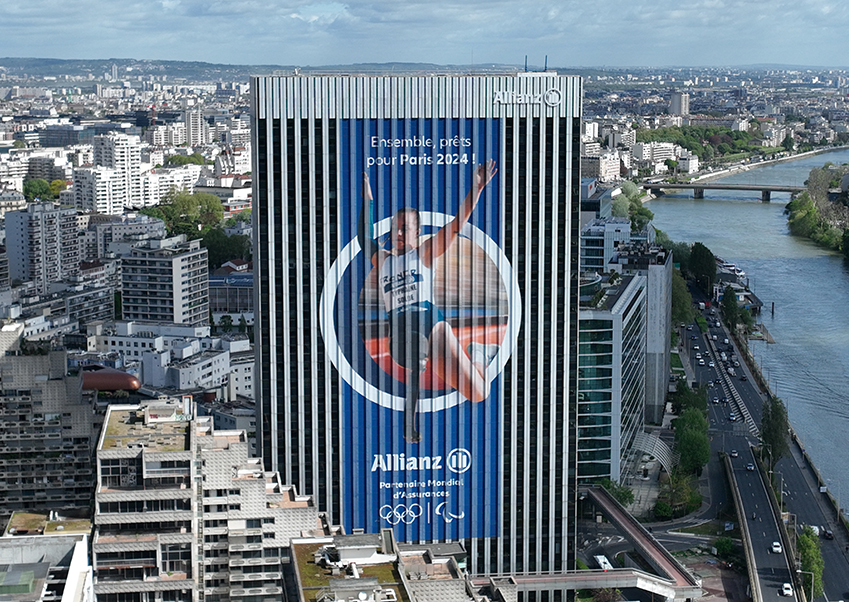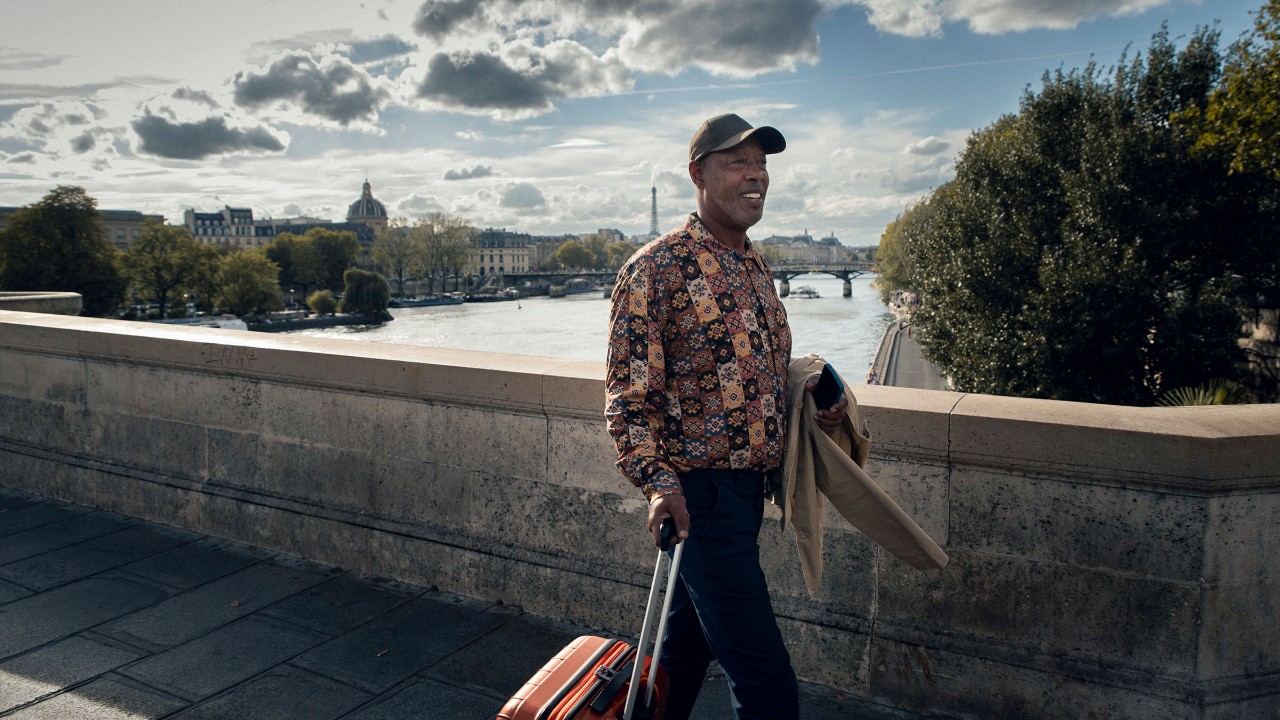Allianz France/IFOP “sports-health” study
The French are active, but some remain on the sidelines
A real awareness among the French of the importance of physical activity and sport
More than 8 out of 10 French people consider physical activity[2] important, and 64% say they spend at least 30 minutes a day being active. They are clearly aware of its health benefits: 93% of respondents mention benefits linked to their physical well-being, and 69% cite benefits linked to their mental well-being and/or stress reduction.
To make being active easier, the French adopt simple measures in their daily lives: 74% prefer to take the stairs and 69% prefer to walk on some of their journeys.
Beyond physical activity, 2 out of 3 French people (61%) take part in regular sporting activities, 86% of them lasting at least an hour. For 63% of them, this is above all described as a pleasure, and for only 9% is it perceived as a burden.
The preferred sports among French people are:
- Walking / Nordic walking (25%),
- Weight training / fitness (14%),
- Running (11%).
Nevertheless, regular exercise can also be difficult to implement: 30% of French people who exercise say they encounter at least one constraint that inhibits them, notably related to time (46%), finances (33%), or mobility (31%). And when 39% of French people don't take part in any sporting activity, it's mainly due to lack of motivation (42%) and lack of time (35%).
Lastly, 24% of French people take little or no part (less than 30 minutes a day) in physical activity and sport, and perceive negative impacts on the following:
- Physical health (63%): weight gain, loss of mobility/flexibility, back pain, etc.
- Mental well-being (23%): increased stress, altered mental health, etc.
- Increased risk of certain illnesses (22%): insomnia, chronic illnesses, etc.
A growing and beneficial incentive to exercise from an early age
Today, almost 9 out of 10 parents (88%) consider it important for their children to exercise in some way.
While only 24% of parents of children and teenagers aged 3 to 17 began practicing sports outside school before the age of 7, this is now the case for 69% of young people in this age bracket.
The long-standing drive to promote physical activity for everyone, everywhere and at any age, seems to be working. This study reveals that doing some type of sport from an early age (between 4 and 6 years) leads to people being active in the long-term due to this being a habit ingrained early on.
Most children play the following sports:
- Soccer (14%)
- Dance (10%)
- Swimming and basketball (9%).
The study also shows the influence of sport within the household: when at least one parent exercises, in 69% of cases, the child does, too. Conversely, when neither parent is physically active, only 43% of children are.
French people's physical activity is not always constant: certain stages of life can encourage or halt it.
For instance, when people have children, they tend to exercise less, while retirement is a good time to start exercising again. In addition, university life and the start of a new job can turn out to be either a showstopper (due to moving house, time constraints, etc.), or a sports booster (more autonomy, etc.).
Against this backdrop, companies can make a real difference by encouraging their employees to take up physical activity or to play a sport. Today, some companies already offer to support their employees, for example by providing changing rooms or showers (47%), a mobility package that sustainable modes of transportation (34%) or other subsidies (31%).
Nearly half of all employees take advantage of these initiatives when they are offered to them. These schemes are “win-win” for companies that do, since 3 out of 4 (72%) say they feel they perform better at work thanks to physical activity or sport.
“Sedentary lifestyles, screen time and lack of physical activity are major health issues in France today. 73% of young people aged 11 to 17, for example, do not meet the activity standards recommended by the WHO. The Paris 2024 Olympic and Paralympic Games are an exceptional opportunity to promote physical activity and sport! As a global partner of the International Paralympic and Olympic Committees, and a major player in the health insurance sector, we are committed to multiplying initiatives in favor of physical activity and sport. Internally, with our employees, we do this by encouraging 30 minutes of activity as part of actions such as Go for 30 or the Allianz World Run, which unites over 600 employees around walking and running, but also externally with our policyholders through solutions for the prevention of musculoskeletal disorders such as Axomove. In this Paralympic and Olympic year, we're proud to play our part in this Great National Cause,” says Alexandre du Garreau, Member of the Allianz France Executive Committee in charge of Distribution.
“Sport is a major means of improving the health of French people, whether through prevention or non-medicinal therapy. Allianz France's insurance policies offer a range of solutions designed to encourage people to take up sport. These services are designed to support both our individual policyholders and companies. The latter have a key role to play in preventing and encouraging their employees to take part in physical activity and sport, especially as this helps to alleviate and prevent certain illnesses (mental health, musculoskeletal disorders, stroke, diabetes, risk of cancer, joint problems, etc.). This public health issue needs to be tackled head on by employers and all stakeholders alike, especially as a sedentary lifestyle is the no. 1 cause of avoidable mortality,” explains Stéphane Camon, leader of Allianz France's “Ma santé” ecosystem.
About the study’s methodology:
The survey was conducted online with two samples:
- A representative sample of 3020 French people aged 18 to 75, from March 11 to 18, 2024
- A representative sample of 1484 families with children aged 3 to 17, from March 11 to 18, 2024.
[1] Government brochure “Grande Cause nationale 2024: Bouge 20 minutes chaque jour”.
[2] We understand physical activity in the broadest sense of the term, i.e. all movements carried out on a daily basis as part of leisure activities, sporting activities, in the workplace or to get around.
Further information
About Allianz
** As of March 31, 2024.


